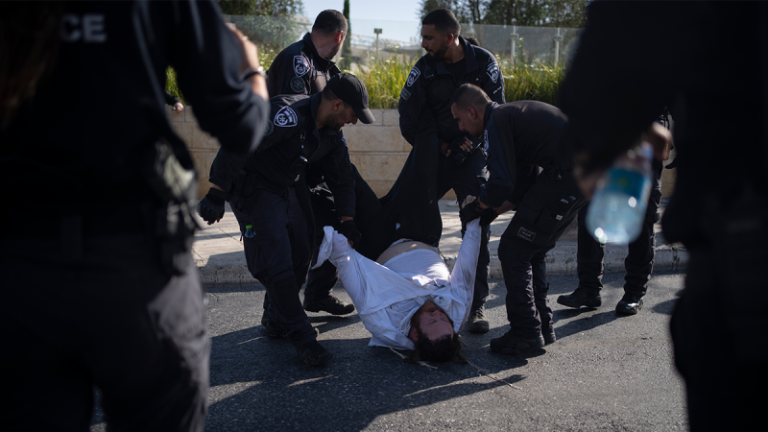Israel’s Supreme Court ruled Tuesday in a unanimous decision that ultra-Orthodox men must be drafted for military service.
The court said without a law that distinguishes between Jewish seminary students and other draftees, Israel’s compulsory military service system applies to the ultra-Orthodox, as it does with other citizens, according to The Associated Press.
Ultra-Orthodox men have long been exempt from the draft, which is compulsory for most Jewish men and women.
The exemptions have sparked anger among the secular public and led to more division amid Israel’s ongoing war against Hamas terrorists, as the military has called up tens of thousands of soldiers for its conflict in Gaza. More than 600 soldiers have been killed in the eight-month-long war.
Politically powerful ultra-Orthodox parties, which are key partners in Prime Minister Benjamin Netanyahu’s governing coalition, do not support any change to the current system. If the exemptions end, the governing coalition could collapse and prompt new elections.
Government lawyers told the court that forcing ultra-Orthodox men to enlist in the military would ‘tear Israeli society apart.’
The court said the state was carrying out ‘invalid selective enforcement, which represents a serious violation of the rule of law, and the principle according to which all individuals are equal before the law.’
Ultra-Orthodox men attend special seminaries that center on religious studies, while they largely refrain from secular topics like math, English or science. Critics have said these men are not prepared to serve in the military or enter the secular work force.
Cabinet minister Yitzhak Goldknopf, who heads one of the ultra-Orthodox parties in the coalition, said on X that the ruling is ‘very unfortunate and disappointing.’
‘The state of Israel was established in order to be a home for the Jewish people whose Torah is the bedrock of its existence,’ he wrote. ‘The Holy Torah will prevail.’
Ultra-Orthodox lawmakers are now expected to face intense pressure from religious leaders and their constituents, and may have to decide whether it is worth it to remain in the government.
The exemptions have faced years of legal challenges, and several court decisions have found the system unjust. Israeli leaders, however, have repeatedly stalled amid pressure from ultra-Orthodox parties.
It remains unclear whether Netanyahu will be able to continue to stall.
Netanyahu has attempted to follow the court’s rulings while at the same time making efforts to preserve his coalition. Now with a slim majority of 64 seats in the 120-member parliament, Netanyahu is often beholden to the issues of smaller parties.
The ultra-Orthodox view their full-time religious studies as doing their part in protecting Israel.
Netanyahu has been pushing a bill tabled by a previous government in 2022 that attempted to address the issue of ultra-Orthodox enlistment.
Critics, however, say the bill was proposed before the war and does not do enough to address the shortage of forces as the army attempts to maintain its troops in the Gaza Strip while also preparing for potential war with Hezbollah in Lebanon.
The ultra-Orthodox community is the fastest-growing segment of the population. Each year, about 13,000 ultra-Orthodox males reach the conscription age of 18, although less than 10% enlist, according to the Israeli parliament’s State Control Committee.
The Associated Press contributed to this report.



